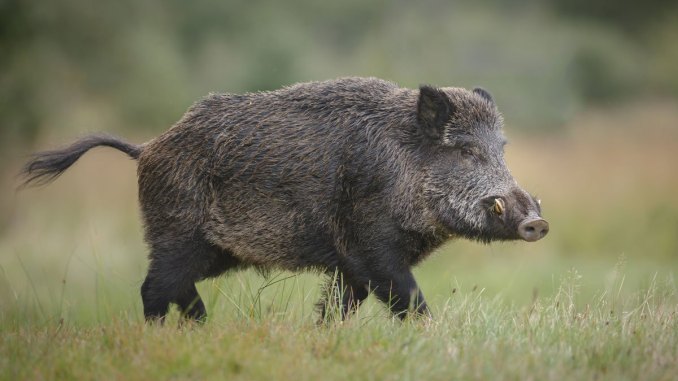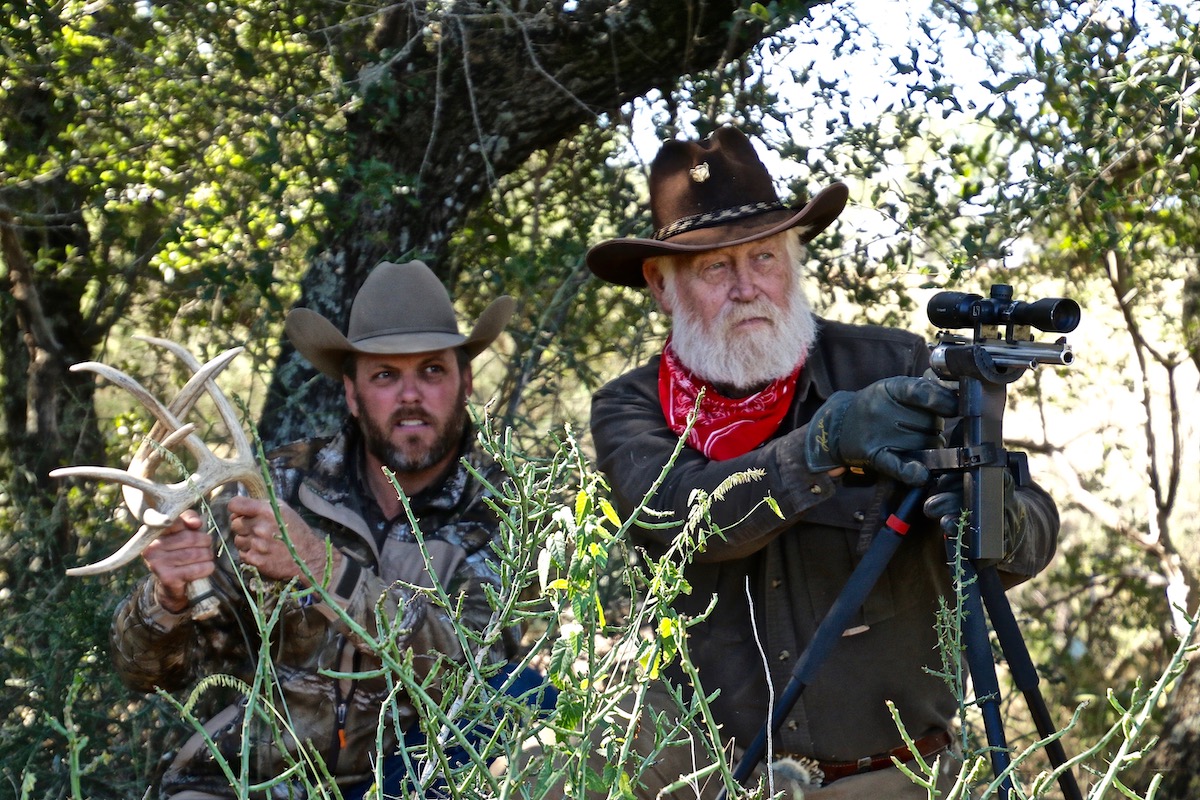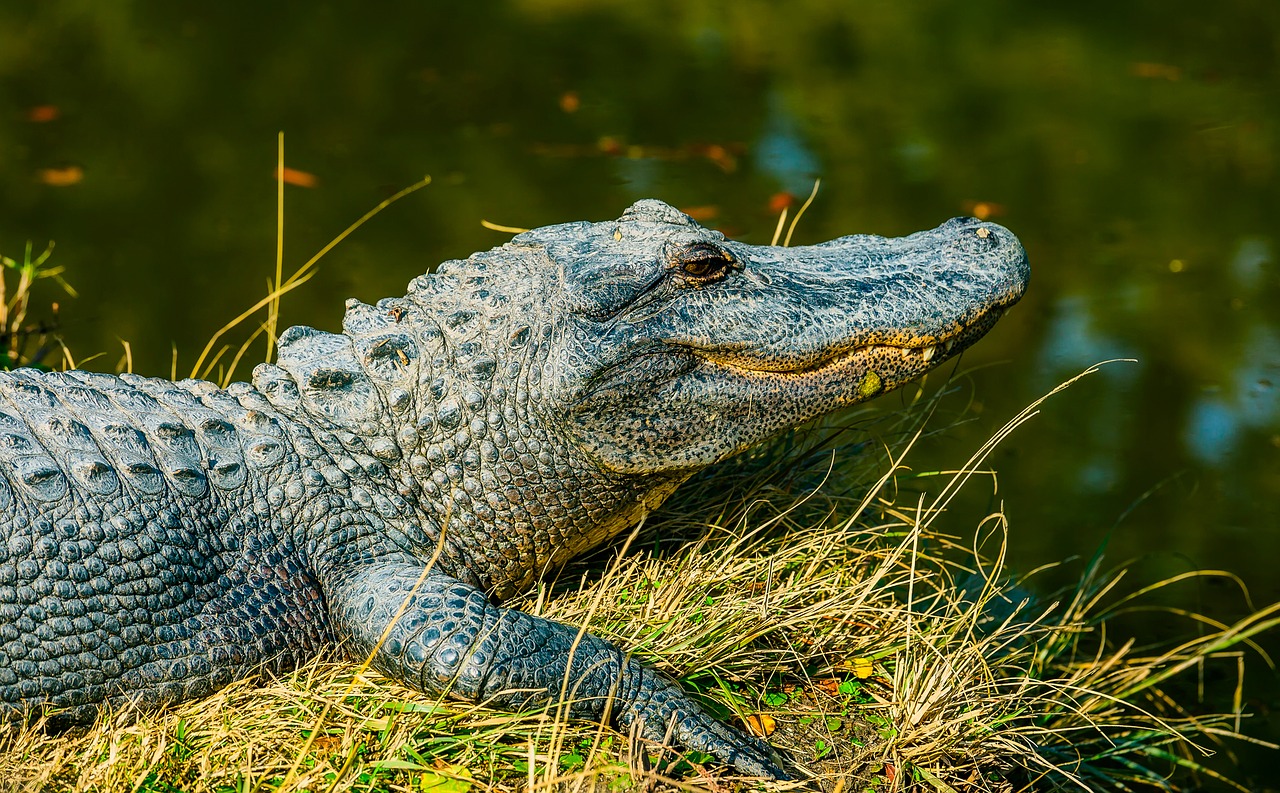You can cuss wild hogs, just don’t cuss them with your mouth full
You can run them with hounds and chase them on horseback or on foot. You can wade into the slashing, squealing, howling melee and kill them with a blade if it’s too tight to shoot between the dogs. You can stalk hill and dale, you can slip upwind in the marsh, salt or fresh, following tracks that look like deer tracks but not quite. You can bait them with corn, hang a stand and nail them with bullet, buckshot or slug. You can kill them with a bow, too, but that’s not for the faint of heart. No season, no license, no limit.
Wild hogs, Sus scrofa, five million snouts, ten million hams across forty states and four Canadian provinces. Domestic swine gone feral, released Russian and German stock, an amalgamation of the three, the finest pig genetics on earth. Intelligent, wary, often nocturnal, a boar will cut you three ways: high, wide and frequent. Tangle with a sow, your hind end will look like a double helping of lasagna. No mystery why they appear on European coats of arms and are immortalized in engraving on fine Continental guns.
But wild hogs raise hell in the woods. Rare swamp plant tubers with Latin names, possums or rattlesnakes? Don’t matter. A boar will put a hoof in the middle of a diamondback, start eating. He will toss it into the air and catch it on the way down, snakebite be damned. Quail eggs for breakfast, turkey eggs for lunch, and don’t ever think they would not eat you if they got the chance. Fall out of a tree stand or break a leg in a gator waller, one hour later there wouldn’t be enough of you left to bury.
But let’s forgive all that. Once you hang your lip over a hot plate of wild pork, you’ll forgive anything.
I’d flown Delta from Minneapolis, then changed planes in Atlanta. Winging into Savannah, the checkerboard of rice fields, dikes and canals rolled on like a patchwork quilt to the horizon in three directions, then to the green timbered high ground on the Georgia side. Ten hours later I was knee deep in what I’d seen from the air, wet with black water, plastered with history and mud.
This swamp was cleared by Africans and Irishmen with shovels, mules and cross-cut saws. The fields produced a bounty that fed millions and made the men who owned them millionaires. But all for naught—a Civil War and back-to-back hurricanes laid waste to labor and hope.
There were pitiful efforts at recovery and a few good crops thereafter, but the woods finally took over and the brick chimneys of the old rice mills grew wild grape vines, the cast iron machinery rusted and settled into the muck, and the fields became the lair of wild hogs, white-tailed deer, coon, bobcats, bears and swampground haints. Indeed, sometimes natural phosphorescence gathers in the tepid low-bottom air, a blue-green glow like the face of a luminescent watch, like St. Elmo’s fire, a Jack Mulatter, a restless spirit, locals say.
The skiff grated the hard sand bottom, the outboard blubbered to a stop. Sounds of the swamp washed over us, the cry of night birds, the peeping frogs and the sawing crickets, the bellow of a bull gator in a dark you could cut with a knife. Gibbes McDowell at the tiller. Me and Gibbes—I’d known him most my life. We’d fished spottails and sea trout, his daddy taught me to call ducks. Now he was a pig guide, among the best, four hundred kills and counting, most of them with a recurve bow, but some with a revolver to stop the occasional charge and a few with a knife when nothing else would do.
Gibbes slipped over the side like an otter, with a quick liquid splash no louder than a mullet breaking water. He wrestled the skiff upon the bank. There was a well-worn trail to the nearest high ground, a long cedar and gum tree point about a hundred yards away. Gibbes led the way and I eased along like he told me to, duckwalking, feet on either side of the muddy tack, bending marsh beneath my boots, a gentle swish upon the wind, never the squish of a boot in sucking mud.
When we parted the bushes at the edge of the high ground, there was a tenuous grunt somewhere out in the dark. Pigs keep up a continuous commentary amongst themselves and if you listen long enough you’ll pick up the lingo. One hog heard us. Bobcat, gator, man, maybe nothing at all? He did not know, but he was suspicious and asked one of his buddies for a second opinion. Gibbes leaned my way, his lips an inch from my ear.
“You fixing to get pork this morning,” he whispered.
Another grunt.
“Who dat?”
We found the clearing in the dark, a half-acre of churned black dirt beneath a grove of sweet gum trees. There had been a feeder there, a tripod supporting a 30-gallon drum, but the pigs had rooted earth from beneath the legs, overturned it, rolled it downhill to the edge of the marsh, hammered it, mauled it, and now it looked like it had been pulled from beneath a three-quarter ton Ford, utterly and totally destroyed.
Gibbes pointed to my stand, a precarious perch 20 feet up a gum, and began spreading corn by hand. Gibbes was back at the boat and I was halfway up the tree when one of those damnable screw-in steps snapped off flush with the bark. I dangled by one hand, held the rifle with the other.
Grunt.
”What dat?”
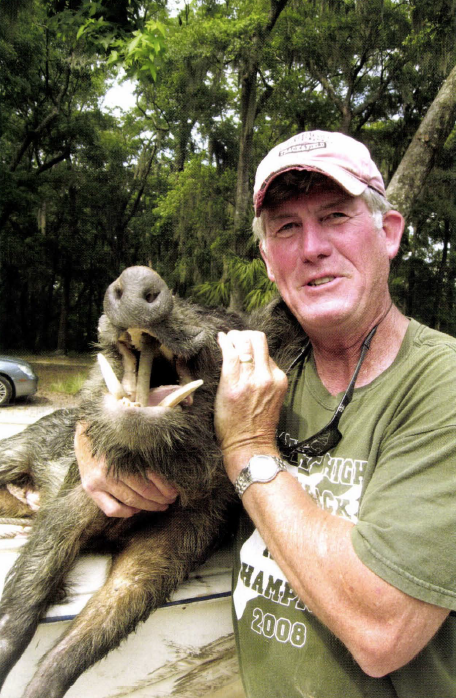
Gibbes McDowell with one of the 400 hogs he’s killed with a recurve bow.
I hoisted myself up on the platform one-handed. A man finds strength in sheer terror, I can testify. Gibbes was somewhere off in the distance by then, the outboard blubbering away into never, never. I planted myself on bare plywood. It didn’t hurt at first. My ass was cast iron back then. Dawn came slowly, gray, then a soft yellow. Suddenly pigs. Not two or three but an Iowa State Fair of pigs, right to left, left to right, gobbling corn, each trying to out-eat the other, snap, snap, snap, like you and I would eat popcorn. Young pigs? Eating size?
Too dark to shoot, I watched the proceedings, trying hard not to laugh or hyperventilate.
I was toting a Swedish Mauser in those days, a Model 1894 cavalry carbine, all tricked out, vintage Weaver glass, 6.5, like a .243 on steroids. Swedes used it on moose, no small consolation when I raised it to my shoulder. But alas, it had a hard plastic buttplate and it touched a button on my collar.
The cagiest swamp buck would have never heard it, the gnarly man-wise bear either. But those pigs erupted in a single connective snort, a-wunk, and they were gone so quickly I could not tell where they went.
I was wrestling my pulse back to normal when a single pig came easing back in, casting eyes this way and that, searching for the source of that suspicious click. I made a quick assessment. It looked like a pig I would eat.
Pop, whop, flop!
A 150-pound sow, perfect. I slid it to the water’s edge, threw the guts to the gators, never more than an arm’s length from that blessed little Mauser. Wasn’t long before Gibbes came blubbering back up the old canal, with a mud-streaked face and a grin I could see from 200 yards.
Back at the Savannah airport, I was checking my bags. One small duffel, a hard case with the Swede inside and a 48-quart marine cooler, heavy as hell and duct-taped 18 ways from Sunday.
“And what’s this?” the TS gal wanted to know.
“Pig meat,” I said. “Hard froze. I really hate to open it.”
The gal didn’t want to mess with all that tape either. She took a Magic Marker and wrote “Pigs Meats” in bold letters across the cooler lid.
“Have a nice flight sir,” she said.
I promised her I would. I settled into a window seat and watched the pig come aboard, felt the cooler thump into the luggage bay. I drifted off somewhere high over Chattanooga, dreaming of a pile of sugar maple coals and a wild hog loin slow cooking with garlic, black pepper, cinnamon and apples.
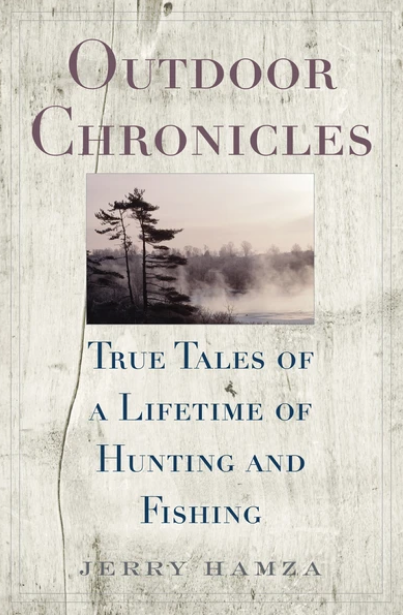 Outdoor Chronicles is a collection of outdoor stories that will make you laugh out loud, and want to carry them wherever you go. They range from a fishing trip to Canada to a little stream that was better than remembered, to how the baby boomers almost trampled a sport to death, to a solitary trek during a cold, dark, and dreary February, and many more. Buy Now
Outdoor Chronicles is a collection of outdoor stories that will make you laugh out loud, and want to carry them wherever you go. They range from a fishing trip to Canada to a little stream that was better than remembered, to how the baby boomers almost trampled a sport to death, to a solitary trek during a cold, dark, and dreary February, and many more. Buy Now

